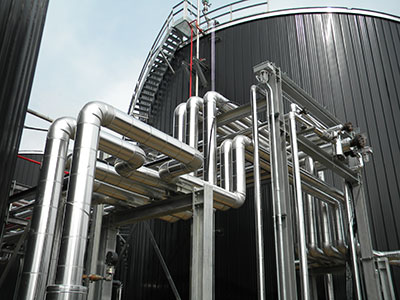If you are searching for a way to prevent water damage, lower heat loss, and make your commercial roof safer, foam glass board insulation could be your game changer.
Foam glass board insulation is used for commercial roofs, tank insulation, and many demanding projects. Its sealed, glass cell structure gives it strong thermal insulation, powerful moisture resistance, and natural fire safety. These qualities make it a reliable choice for long-term durability and energy savings.

Building owners and project engineers face tough demands—energy efficiency, durability in harsh weather, and meeting modern safety codes. Over the years, I’ve watched foam glass board insulation gain traction because it deals with all these challenges better than most materials. Let me explain why and show you where it stands out.
Why is foam glass board insulation so effective for commercial roofing?
Every year, I meet clients stressed about leaking roofs, high heating bills, and tough fire codes. Foam glass board insulation deals with each risk directly.
This insulation does not soak up water, even after years of exposure. It shrugs off moisture, helping prevent the growth of mold and the slow creep of corrosion, two problems that can ruin roof systems. When I check old roofs that used cheaper materials, I often find soaked, moldy insulation and rusted tanks. Foam glass simply does not let water in, so roofs stay dry and lasting.
There’s more. Because foam glass is made from all mineral content, it will not catch fire or add toxic smoke if flames break out. I’ve seen cases where foam glass insulation helped prevent fire from spreading, buying precious minutes for teams to respond. This is a big relief for anyone who runs sites with tight safety requirements.
In terms of energy savings, foam glass board does not sag, shrink, or lose its insulating power over time. Once it is installed properly, it locks in energy savings by keeping hot or cold air where it should be. Many of my clients see heating and cooling costs drop right after the upgrade, and it keeps paying back for decades.
What are the key advantages of using foam glass board insulation?
From my own experience and feedback from top engineers, I know foam glass boards bring a long list of benefits. First, there is peace of mind from knowing the insulation will not soak up water or fall apart. Even in messy storm seasons, the inside of the roofing system stays completely dry.
Fire safety is another big selling point. Foam glass will not burn, so it boosts your building’s fire protection scores. It is a real asset in chemical plants, tank farms, and warehouses that cannot afford any safety shortcuts.
Durability matters too. Foam glass holds strong against wind, changing temperatures, chemicals, and even pests. It can handle the load of foot traffic and heavy machinery on roofs. Plus, it’s made from recycled glass, so it fits right into green building goals.
In commercial construction, where owners want to save money over years and reduce risk, these features put foam glass board insulation at the top of my list.
Are there drawbacks to foam glass board insulation?
No product is perfect, and I always tell clients the full story. The biggest hurdle is the up-front cost. Foam glass board insulation costs more per square foot than most alternatives. You also need to budget for careful handling and skilled installation, as the boards can crack or chip if dropped.
Not every location has foam glass boards in stock, so it may take time to order. If your roof design uses a lot of curves and tight angles, the rigid shape of foam glass might make the job harder. In places with big temperature swings, the material can grow slightly brittle, so it is wise to work with experienced contractors.

I advise project managers to look at long-term savings and consider all costs, including the fewer repairs and insurance benefits that foam glass usually brings. For the right project, the investment will pay off, but it is always smart to check fit and supplier timing first.
When does foam glass board insulation make the most sense?
Clients often ask me if paying extra for foam glass board makes sense for their building. The answer depends on what is most important for each site. If you need unbeatable moisture protection, fire resistance, or top energy savings, foam glass is hard to beat.
I recommend it for facilities like chemical plants, warehouses, cold storage sites, and anywhere the insulation must last as long as the building. It is also a favorite for green roof designs and places looking to meet strict sustainability or safety rules.
In my years in the industry, I’ve seen site engineers express real relief at having fewer repairs and lengthy roof life. When you want strong performance year after year, foam glass usually stands out as a wise move.

To see if foam glass board insulation is right for you, connect with suppliers like HUAYUE for project-specific quotes and advice. They know their product and logistics and can help match you with the best option for your site and budget.
Conclusion
Foam glass board insulation offers lasting energy savings, keeps roofs dry, and meets top fire safety standards for commercial projects.

